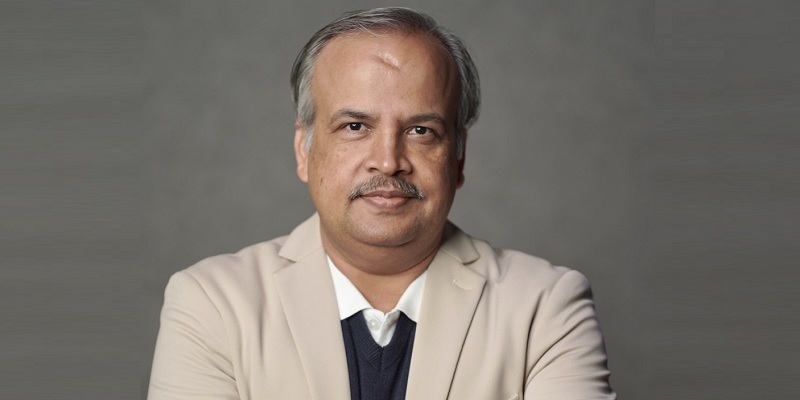Schedule a Call Back
Indo-German cooperation on the right track to move up and ahead
 Technical Articles
Technical Articles- Dec 01,17

The outlook for Indo-German trade is quite optimistic given improved investment climate and a positive approach from Governments in both countries, says Bernhard Steinruecke.
Towards the end of May 2017, the fourth Intergovernmental Consultations (IGC) between India and Germany were held in Berlin. India’s Prime Minister Narendra Modi and the German Federal Chancellor Dr Angela Merkel agreed to further strengthen the strategic partnership between India and Germany, by deepening cooperation on foreign policy and security issues as well as on sustainable development and enhanced trade and investment ties. They reiterated that the Indo-German strategic partnership is based on common values of democracy, free trade and a rule-based international order and that it has strengthened the bilateral relations by further enhancing trust and mutual respect.
Indo-German trade spans over 500 years and is the basis for strong economic and business ties between the countries. Over the past 55 years, for which compiled trade data is available, Germany and India have emerged as strong trade partners for each other. FY 2016-17 saw a moderate growth in trade between India and Germany and Germany continues to be India’s largest trading partner in the European Union. It ranks 4th in the list of India’s top ten trading partners worldwide.
According to the latest statistics released by the Federal Statistical Office in Wiesbaden the trade volume between India and Germany during the first half of 2017 showed an encouraging increase of 11.56% over the same period last year to touch a trade volume of EUR 9.67 billion. Both, Germany’s imports from India and exports to India increased by 11.11% and 11.94% respectively. Volume of Germany’s imports from India was EUR 4.37 billion and that of Germany’s exports to India was EUR 5.30 billion from January 2017 to June 2017.
Import-exports scenario
Machinery, electro-technology and chemical products formed India’s top imports in the first half of 2017. India imported machinery worth EUR 1,562.26 million during the first half of 2017, which accounted for 29.47% of total imports from Germany during this period. Electro-technology formed the second most important item with imports amounting to EUR 707.91 million and a share of 13.35%. Chemical products featured third on the list, with imports worth EUR 683.83 million and a share of 12.90% of India’s total imports from Germany in that period.
Major exports from India to Germany, in the first half of 2017, were textiles, chemical products and food, beverages and tobacco. Textiles were the most important item, with exports amounting to EUR 1,084.87 million in the first half of 2017 and making up 24.83% of India’s total exports to Germany during that period. Chemicals followed with EUR 564.69 million and a 12.92% share of the total exports to Germany in the first half of 2017. Next category was food, beverages and tobacco with exports to the tune of EUR 445.22 million and a share of 10.09% of exports to Germany in that period.
FDI inflow from Germany
With respect to German investments in India, considering foreign investment inflows from April 2000, Germany is the seventh most important investing country for India. The country has consistently been among the top ten investing countries for India. During the last financial year (2016-17), Germany ranked seventh with FDI inflows to the tune of $ 9.69 billion. While overall foreign direct investments into India grew by 8.69% during the last fiscal, inflows from Germany increased by 8.42%.
The top ten sectors where for German investments in India in the last fiscal have been the services sector (including financial, banking, insurance, non-financial/business, outsourcing, R&D, courier, technical testing and analysis, and other services) – $ 303.10 million; trading – $ 110.19 million; electrical equipment – $ 90.81 million; construction (infrastructure) – $ 87.49 million; automobile – $ 86.4 million; glue and gelatin – $ 78.61 million; industrial machinery – $ 55.85 million; chemicals (other than fertilisers) – $ 52.31 million; non-conventional energy – $ 50.03 million and textiles – $ 23.13 million.
In terms of regions where German companies in India are active and investing, the top ten in the 2016-2017 fiscal were Maharashtra (along with Dadra and Nagar Haveli, Daman and Diu) – $ 585.19 million; Delhi (along with parts of Uttar Pradesh and Haryana) – $ 140.78 million; Karnataka – $ 86.83 million; Tamil Nadu (along with Pondicherry) – $ 23.81 million; Orissa – $ 3.29 million; Andhra Pradesh – $ 2.80 million; Gujarat – $ 1.16 million; West Bengal (along with Sikkim and Andaman and Nicobar Islands) – $ 0.28 million; Bihar (along with Jharkhand) – $ 0.20 million and Kerala (along with Lakshadweep) – $ 0.13 million.
Skilling India
German companies bring to the table a structured, meticulous working style and expertise in high-end technology and engineering. In addition, their manufacturing excellence and capabilities can be a source of vital learning to Indian companies. One more important aspect that German companies bring to India is their focus on vocational training. In line with the German Dual Education System, German companies in India give a lot of importance to providing skilling and training to their employees.
Quite a few German companies have partnered with the Indo-German Chamber of Commerce (IGCC) to develop their own vocational training programmes for employees, which are as per German standards, and are planned, implemented and evaluated with the assistance of the Chamber’s DUALpro brand of services and the Indo-German Training Centre (IGTC). The huge emphasis that German companies lay on research and development (R&D), is also something that Indian companies can learn, adopt and benefit from. In addition, even the German companies’ support to the Indian government’s initiatives like Make in India and Skill India, contributes to India’s economic development.
India too offers great potential to German firms. With its policy changes directed towards driving growth, India seems to have reinforced its position as a relatively secure investment destination among emerging markets, in a somewhat volatile global economic environment. As per results of the Indo-German Chamber of Commerce (IGCC) Business Monitor 2017, a representative survey of German investors in India, more than 60% respondents reported an increase in revenues, with around 17% reporting a revenue increase of more than 20%. In terms of their expectations from FY 2017-18, a significant 77% of respondents predict and increase in their revenues, with over 20% pegging this increase in revenue at more than 20%.
While the prospects for Indo-German cooperation are very favourable and optimistic, the road to this success is not exactly easy or straightforward. German companies face quite a few challenges along the way, with lack of infrastructure and prevailing bureaucracy, being among the biggest ones. As per IGCC’s Business Monitor 2017, corruption, tax disputes, labour unrest, lack of skilled resources are some of the other challenges that German companies in India face.
The survey also brings to light that almost 80% of the surveyed managers expect the impact of India’s current policy environment and investment climate to influence their business in a moderately positive (50% respondents) to very positive (26% respondents) manner.
Collaborative efforts
In light of this positive disposition, there are various sectors that open up avenues for India and Germany to explore collaboration. A study released by the Indian Embassy, Berlin and E&Y (2015) has identified seven High-Technology Clusters (with 13 Sectors) that hold the most potential for trade and investment in the coming years.
As Indian Prime Minister Narendra Modi stated in his speech in Berlin, “India is a big country. Hence, nothing is enough when it comes to development. We have many dreams. And the dreams are big. But we have small timelines. And this is your opportunity.”
It is these very opportunities which bring to light the areas where a lot more can be done and waits to be achieved in terms of Indo-German cooperation. Starting with housing, developing smart cities, modernising the railway networks, right to generation of renewable energy, construction of transmission and distribution networks and satisfying the ever-growing need for national highways, bridges, and mass urban transport systems, schools, hospitals and skill training institutes; there are multiple sectors and areas where potential can be explored by German firms. SMEs and startups can actually play a key role in exploring these opportunities through initiatives like Make in India Mittelstand, StartUp AsiaBerlin, etc.
Scaling new heights
Looking at the various reforms that are being taken in order to improve the ease of doing business in India, and considering that India has been one of the fastest growing economies with a GDP growth rate of over seven percent, the prospects for India seem bright. And with the upward trend seen in Indo-German trade and investments, combined with a positive approach from Governments in both countries to support each other, the outlook for Indo-German cooperation in terms of business and trade is quite optimistic and more and more businesses should go ahead and leverage it.
References for data sources:
• Federal Statistical Office, Wiesbaden
• Department of Industrial Policy and Promotion
• Ministry of External Affairs
• IGCC Business Monitor 2017
Bernhard Steinruecke is the Director General of the Indo-German Chamber of Commerce (IGCC) and Director on various Boards like Apollo Munich, Bosch, HDFC Ergo, Nuremberg Messe India and Zodiac Clothing. He is also the Chairman of the German School, Mumbai; Program Ambassador for the German Chancellor Fellowship of the Alexander von Humboldt Foundation; Chairman of the AHK Board and World Speaker of the German Chambers Abroad.
Related Stories

VDMA’s India Day at Hannover boosts Indo-German trade
The Indian unit of VDMA (the German Engineering Federation) hosted India Day at Hannover Messe 2019 to project India as huge market and investment destination for investments in the heavy engineerin..
Read more
Indo-German partnership goes beyond business
Trade partnership between India and Germany is over 500 years old. More than 300 hundred years ago, Germany was the first country to undertake research on Indian languages such as Tamil, Telugu, Mal..
Read more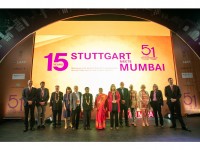
15th edition of Stuttgart meets Mumbai Wine Festival held in Mumbai
Andreas LAPP, Honorary Consul of the Republic of India for Baden-Württemberg and Rhineland-Palatinate and Isabel Fezer, Mayor for Youth and Education, Stuttgart inaugurated the festival
Read moreRelated Products
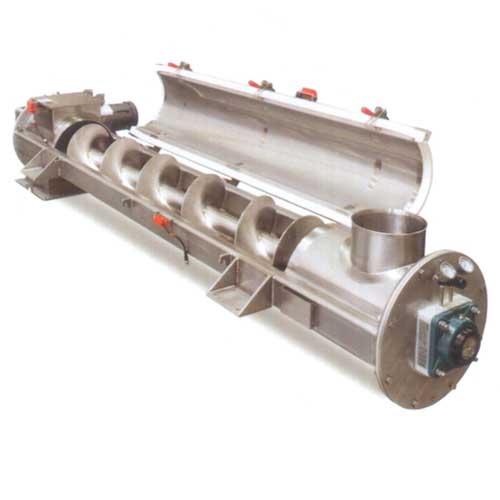
Screw Feeder
Manish Engineering Works offers a wide range of screw feeder.
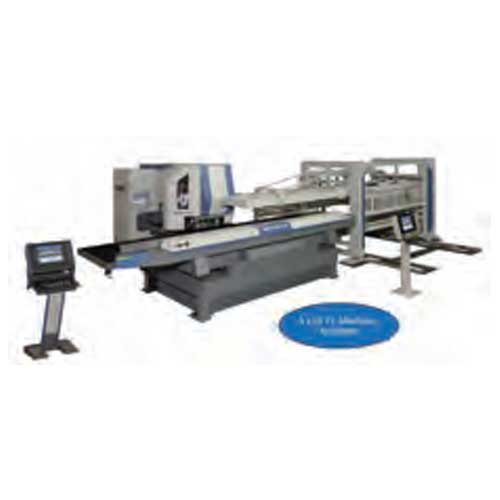
FMC - Motorum 3048 Tg With Fs2512
Meiban Engineering Technologies Pvt Ltd offers a wide range of compact & highly productive FMC - Motorum 3048 TG with FS2512. Read more
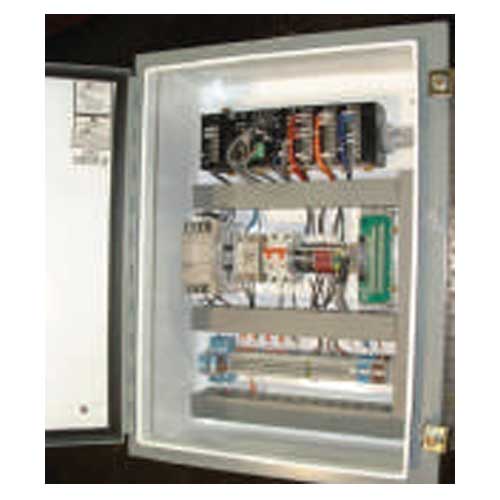
Based Panels - Plc
E&A Engineering Solutions offers a wide
range of PLC based panels.





